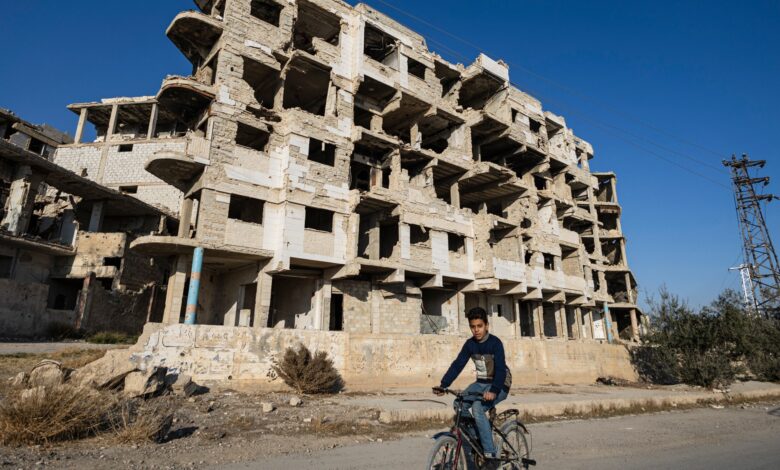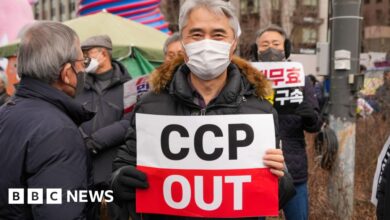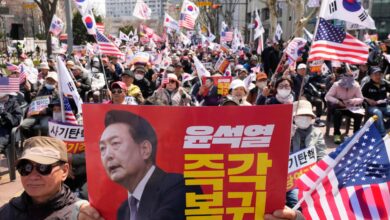Rebuilding Syria requires much more than bricks and mortar | Opinions

Rebuilding Syria after more than a decade of devastating conflict is no simple task. The country’s devastation extends to its physical infrastructure, governance systems, and the very social fabric that once held its people together. While the dream of a prosperous, strong, and united new Syria is certainly achievable after the fall of the Assad regime, certain conditions must be met before the country can rise from its ashes.
First, a transitional government must be formed whose powers are accepted by all stakeholders to ensure a smooth transition to democracy. Any attempt to rebuild can only achieve success if it is guided by an inclusive and stable government that enjoys international recognition and the confidence of the Syrian people. A new Syria cannot be built without a new social contract that defends human rights, democracy, and the rule of law. Crafting this contract will require the collective wisdom of Syria’s brightest minds and thought leaders, as well as the real support of the global community. The success of the reconstruction process will only be ensured through a transitional process managed by the Syrians themselves, but with the full support of international institutions through the exchange of experiences and the provision of technical support.
This endeavor will be difficult, and the path to achieving it is likely to be fraught with obstacles as the current political landscape remains fragmented, with no clear path to the formation of a stable and fully representative government. But without this, reconstruction efforts may become another tool for deepening divisions rather than healing them.
Secondly, the stability of the Syrian state and the security of its people must be guaranteed. A country under attack and fraught with conflict cannot be rebuilt effectively. The Israeli air attacks on Syrian territory and the annexation of more territory since the fall of the Assad regime have exacerbated the state of instability. Such actions not only destroy infrastructure, but also demoralize communities and threaten hopes for rapid reconstruction and recovery.
While the international community is closely monitoring the new Syrian leadership to ensure a smooth transition, it must also send a clear and strong message to Israel. This letter should strongly condemn Israel’s actions and demand their immediate cessation. The international community must make clear that such behavior is unacceptable and must stop immediately. Stability is not just the absence of war; It’s about creating an environment where people feel safe to rebuild their lives and invest in their future. The last thing Syrians need at this critical juncture is a new war front with all the uncertainty and instability it will create for the new transitional government.
Third, international sanctions must be lifted to allow the country to get back on its feet. Caesar ActThese measures must be abolished, especially those that have paralyzed the Syrian economy and made it almost impossible to attract foreign investment. These sanctions, which were intended to pressure the former regime to enact human rights reforms and ease repression, had a significant impact on the daily lives of Syrians, deepening their suffering and despair.
The international community may be reluctant to lift sanctions completely due to uncertainty about the new Syrian leadership. However, a more nuanced approach can be adopted. Instead of comprehensive sanctions, a targeted strategy could be implemented that includes easing restrictions on Syria’s dynamic business community and private sector. This would contribute to Syria’s long-term stability and accelerate the reconstruction process. On the other hand, targeted sanctions against specific government officials can be used as a tool to encourage positive transformation, if necessary. This approach balances the need for caution with the necessity of economic recovery and rebuilding.
Fourth, civil society must be empowered to play an active role in the reconstruction process. Independent local organizations must be closely involved in all reconstruction efforts, ensuring transparency and accountability. Under the rule of the Assad family, Syria never had an independent civil society. Years of iron-fisted control have extinguished community-led initiatives, leaving the community ill-equipped for meaningful public engagement. However, during the transition and large-scale reconstruction, grassroots organizations that advocate for justice and ensure that aid reaches those in need have a crucial role to play. Without it, the rebuilding process is at risk of corruption and nepotism. Syria’s new rulers must prioritize supporting and strengthening Syrian civil society to ensure a healthy and successful reconstruction.
Rebuilding Syria is not just about politics, it is also a complex technical puzzle. The country is in desperate need of people with technical knowledge and experience so that they can develop a long-term plan for reconstruction, budget effectively, and address the obstacles that will inevitably arise in various complex reconstruction projects. But here’s the tricky part: Should Syria’s new leaders draw on the experience of officials in the old regime? These officials and civil servants have valuable inside knowledge, but their ties to a government accused of atrocities can cause large segments of the population to lose confidence in the entire process. Finding the right balance is crucial. Rebuilding efforts must be inclusive of all Syrians, especially those most affected by the war – women, children and minorities. Antagonizing any group by giving too much power to people with close ties to the old regime would not only be wrong, it is a sure way to reignite tensions and sabotage any reconstruction efforts before they even begin.
Reconstructing Syria will also be expensive. Who will pay for all this? The new Syrian leadership cannot carry out this task alone, using only the remaining state coffers. A coalition of international donors, including United Nations organizations, will need to provide the country with huge funds. But they will not open their wallets unless there is a government that people trust. Donors need to know that their money will not be wasted or stolen. It is also important to ensure that aid coming into Syria is not dispersed or politically motivated. Tying aid donors to their own political demands and priorities will only lead to wasted effort, aid gaps, and greater mistrust. What is needed is a unified approach that prioritizes the real needs of the Syrian people and does not allow aid efforts to be shaped by political games. Syria could benefit from hosting a comprehensive reconstruction conference, bringing together international donors and the new Syrian government to align reconstruction priorities, ensure transparent cooperation, and begin rebuilding the country’s infrastructure and social fabric.
Last but not least, education will be crucial in rebuilding Syria into a vibrant, inclusive and prosperous country. A strong educational system fosters a society that values human rights, community participation, and justice. Only by investing in education and community participation will Syria be able to heal its social fabric and raise a generation that chooses dialogue and cooperation instead of conflict.
The most important aspect of rebuilding Syria is rebuilding Syrian society. After all, behind all the art are real people – families who have lost loved ones in arbitrary detention, children left without education, and entire communities suffering from trauma. Rebuilding is not just about repairing roads, homes, schools and hospitals; It is about restoring people to their dignity and hope. Syrians need to feel that their suffering was not in vain, that they have a say in their country’s future, and that the days ahead hold more than just loss and conflict.
Rebuilding Syria will take time and require dedication from all stakeholders. It’s not just about building – it’s about rebuilding trust, including everyone involved in the process, and making sure people are held accountable. The journey ahead is a long one, but with the right foundation, there is hope that Syria will once again become a prosperous and resilient country. This is an important challenge for Syrians and for all of us.
The opinions expressed in this article are those of the author and do not necessarily reflect the editorial position of Al Jazeera.
https://www.aljazeera.com/wp-content/uploads/2024/12/AFP__20241214__36QD9U9__v1__HighRes__SyriaConflict-1734223010.jpg?resize=1920%2C1440
2024-12-22 11:42:00





